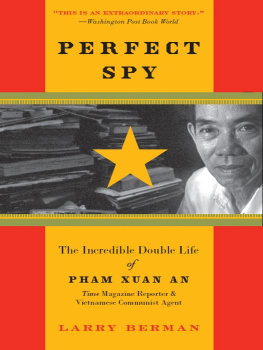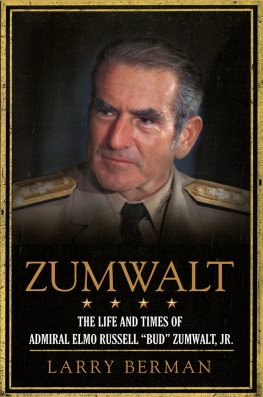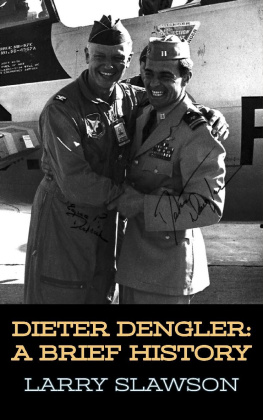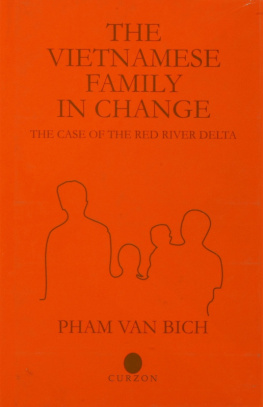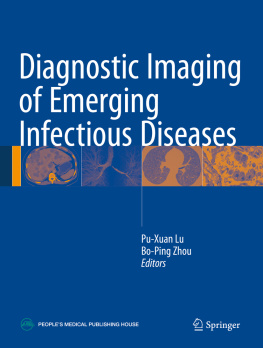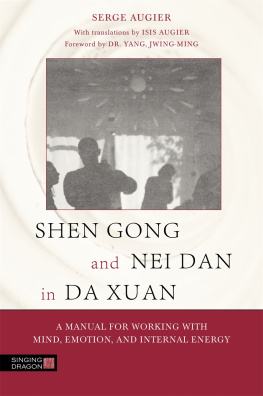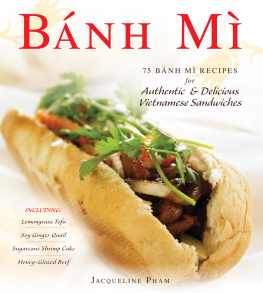Larry Berman - Perfect Spy: The Incredible Double Life of Pham Xuan An, Time Magazine Reporter and Vietnamese Communist Agent
Here you can read online Larry Berman - Perfect Spy: The Incredible Double Life of Pham Xuan An, Time Magazine Reporter and Vietnamese Communist Agent full text of the book (entire story) in english for free. Download pdf and epub, get meaning, cover and reviews about this ebook. year: 2009, publisher: HarperCollins, genre: Science. Description of the work, (preface) as well as reviews are available. Best literature library LitArk.com created for fans of good reading and offers a wide selection of genres:
Romance novel
Science fiction
Adventure
Detective
Science
History
Home and family
Prose
Art
Politics
Computer
Non-fiction
Religion
Business
Children
Humor
Choose a favorite category and find really read worthwhile books. Enjoy immersion in the world of imagination, feel the emotions of the characters or learn something new for yourself, make an fascinating discovery.
- Book:Perfect Spy: The Incredible Double Life of Pham Xuan An, Time Magazine Reporter and Vietnamese Communist Agent
- Author:
- Publisher:HarperCollins
- Genre:
- Year:2009
- Rating:3 / 5
- Favourites:Add to favourites
- Your mark:
- 60
- 1
- 2
- 3
- 4
- 5
Perfect Spy: The Incredible Double Life of Pham Xuan An, Time Magazine Reporter and Vietnamese Communist Agent: summary, description and annotation
We offer to read an annotation, description, summary or preface (depends on what the author of the book "Perfect Spy: The Incredible Double Life of Pham Xuan An, Time Magazine Reporter and Vietnamese Communist Agent" wrote himself). If you haven't found the necessary information about the book — write in the comments, we will try to find it.
Larry Berman: author's other books
Who wrote Perfect Spy: The Incredible Double Life of Pham Xuan An, Time Magazine Reporter and Vietnamese Communist Agent? Find out the surname, the name of the author of the book and a list of all author's works by series.
Perfect Spy: The Incredible Double Life of Pham Xuan An, Time Magazine Reporter and Vietnamese Communist Agent — read online for free the complete book (whole text) full work
Below is the text of the book, divided by pages. System saving the place of the last page read, allows you to conveniently read the book "Perfect Spy: The Incredible Double Life of Pham Xuan An, Time Magazine Reporter and Vietnamese Communist Agent" online for free, without having to search again every time where you left off. Put a bookmark, and you can go to the page where you finished reading at any time.
Font size:
Interval:
Bookmark:
The Incredible Double Life of Pham Xuan An, Time Magazine Reporter and Vietnamese Communist Agent

For Scott and Lindsay
Prologue:
I Can Die Happy Now
Epilogue:
An Extraordinary Double Life
I C AN D IE
H APPY N OW
I FIRST MET P HAM X UAN AN in July 2001 at Song Ngu seafood restaurant, located on Saigons bustling Suong Nguyet Anh Street. I had been invited to a dinner hosted by my friend Professor James Reckner, director of The Vietnam Center at Texas Tech University. Approximately twenty guests were seated at a long and rather narrow table, where the only chance for conversation was going to be with the person at my left or right or directly across the table. I spoke no Vietnamese, and the two Vietnamese academics seated on either side spoke no English. The only empty seat at the table was directly opposite me.
I began thinking this was going to be a long evening when I noticed everyone at the table rising to greet the thin, wiry Vietnamese gentleman joining us. I guessed he must be in his late sixties, and he had a certain self-effacing gentleness about him. I overheard Jim saying, Welcome General An, we are so pleased you could join us. A few moments later we were seated opposite each other. The general had responded to Jim in English, so I quickly introduced myself as a professor from the University of California, Davis. Pham Xuan Ans eyes lit up. You are from California! I once lived there and went to college in Costa Mesa. It was the happiest time of my life.
For the next two hours, An and I talked about a range of subjects, beginning with his two years at Orange Coast College, where he majored in journalism; his travels across the United States; and all he had learned from and admired about the American people. An told me he had visited Davis while interning at the Sacramento Bee . He recalled the personal kindness of publisher Eleanor McClatchy, and mentioned he had met the governor of California, Edmund G. Pat Brown, while attending a conference for college newspaper editors in Sacramento. An beamed with pride when telling me that his eldest son, Pham Xuan Hoang An, anglicized as An Pham, had also studied journalism in the United States at the University of North Carolina at Chapel Hill and had recently graduated from Duke University Law School.
Barely touching his food and always reaching for another cigarette, An asked about my current research. At the time I was writing a book about the secret Paris negotiations between Henry Kissinger and his North Vietnamese Communist counterpart, Le Duc Tho, during the Nixon presidency. An launched into a detailed and sophisticated analysis of the negotiations, providing me with new information and a fresh perspective. As he spoke, I recalled reading about a highly respected Time magazine reporter who turned out to be a spy for the North Vietnamese and surmised that my dinner companion was that person.1
An never said a word that evening about his job in espionage, focusing instead on the details of his other job as a correspondent for Reuters and Time . He spoke passionately about his trade and with fondness about his many American friends in journalism, mentioning many of the eras best-known reporters, including Robert Shaplen, Stanley Karnow, Frances FitzGerald, Robert Sam Anson, Frank McCulloch, David Halberstam, Henry Kamm, and Neil Sheehan. He told me that his circle of friends extended well beyond journalism to include the CIAs Lou Conein, Colonel Edward Lansdale, and former CIA director William Colby, who had been the CIA station chief in Saigon. He also mentioned many South Vietnamese politicians and generals, including General Tran Van Don, Ambassador Bui Diem, General Duong Van Minh, known as Big Minh, who was the last president of the Republic of South Vietnam, and former prime minister and vice president Nguyen Cao Ky, who regularly sought Ans advice on fighting cocks and dog training.
My dinner companion seemed to know everyone who was anybody during the war. As we parted that evening, An gave me his card, with a drawing of a German shepherd on one corner and a rooster on the other, asking that I call him the next day in order to continue our conversations about the Paris negotiations. After dinner, my friend Khanh Le, who works for the Vietnam Center at Texas Tech and whose family fled the Communist takeover in April 1975 just a few days after Ans wife and children evacuated Saigon for the United States, told me that I had just spent three hours with Major General Pham Xuan An of the Vietnam Peoples Army, the recipient of four Liberation Exploit medals and six Soldier of Emulation medals along with the title he held to that day, Peoples Army Hero.
I was curious whether Khanh felt any animosity toward a man who had not only been his enemy, but who by living a life of deception had seemingly betrayed so many Vietnamese in the south. Khanh explained that he had not known An during the war. He did not know what to expect when a few years earlier he was asked by a mutual friend to meet An for coffee. Khanh discovered a humble and reflective man who never once displayed a hint of what he called victors arrogance. Khanh used the words friendly and open-hearted and wanted me to know that An lived a simple life.

David Halberstam sent An this New York Times Magazine photo, writing below it, Is Pham Xuan An A Great Problem? B ETTMAN /C ORBIS
Both men lost something in the war. Khanh lost his country on April 30, 1975; An lost his brother, Pham Xuan Hoa, killed in a 1964 helicopter crash. Hoa worked for the South as an air force mechanic. An also lost his dream for what a unified Vietnam might become. Ironically, it was Khanh who was free to travel regularly between his home in Lubbock, Texas, and Ho Chi Minh City for extended visits with his family. General Pham Xuan An, Hero of the Revolution, had never been permitted to leave Vietnam to visit his many friends or family members in America. Both men were aware of what the other had lost; their friendship was testimony to the reconciliation between Vietnamese patriots on both sides of the war.
When I called An the next morning, he immediately suggested we meet at Givral. During the war, Givral coffee shop, located across the street from the Continental Hotel and within earshot of the National Assembly building, had been the gathering spot for journalists, correspondents, police, and government officialsthe place where rumors started, were tested for their staying power, and where everyone hunted for the best story line of the day. The rumor mill was known as Radio Catinat for the street Rue Catinat, but after 1954 changed to Tu Do, meaning Liberty Street. After the war, the name changed again to Dong Khoi, or Collective Uprising. Through all these name changes, Pham Xuan An held the title General Givral because it was here that he could be found daily, dispensing information, almost always in the company of King, his large and obedient German shepherd, his green Renault quatre chevaux parked in front.
For the next two years, that is, until An became ill, he and I met regularly at Givral. A rhythm developed to our meetings. I would arrive first to secure a window table and review my notes and questions. An would pull up on his old green motor scooter and walk directly to our table, not before receiving a warm welcome from Givrals staff. For the next few hours I would ask questions and take copious notes while An explained the nuances of Vietnamese politics and history. An would sometimes put his cigarette down, take my notepad, and write a name or phrase for me, so that I could better grasp his point. When I would ask if he was tired, An always suggested ordering lunch and kept talking. I soon came to appreciate the observation of Ans friend and former colleague David Greenway that An is a reminder to me of how much I saw of Vietnam but how little I understood.2
Font size:
Interval:
Bookmark:
Similar books «Perfect Spy: The Incredible Double Life of Pham Xuan An, Time Magazine Reporter and Vietnamese Communist Agent»
Look at similar books to Perfect Spy: The Incredible Double Life of Pham Xuan An, Time Magazine Reporter and Vietnamese Communist Agent. We have selected literature similar in name and meaning in the hope of providing readers with more options to find new, interesting, not yet read works.
Discussion, reviews of the book Perfect Spy: The Incredible Double Life of Pham Xuan An, Time Magazine Reporter and Vietnamese Communist Agent and just readers' own opinions. Leave your comments, write what you think about the work, its meaning or the main characters. Specify what exactly you liked and what you didn't like, and why you think so.

